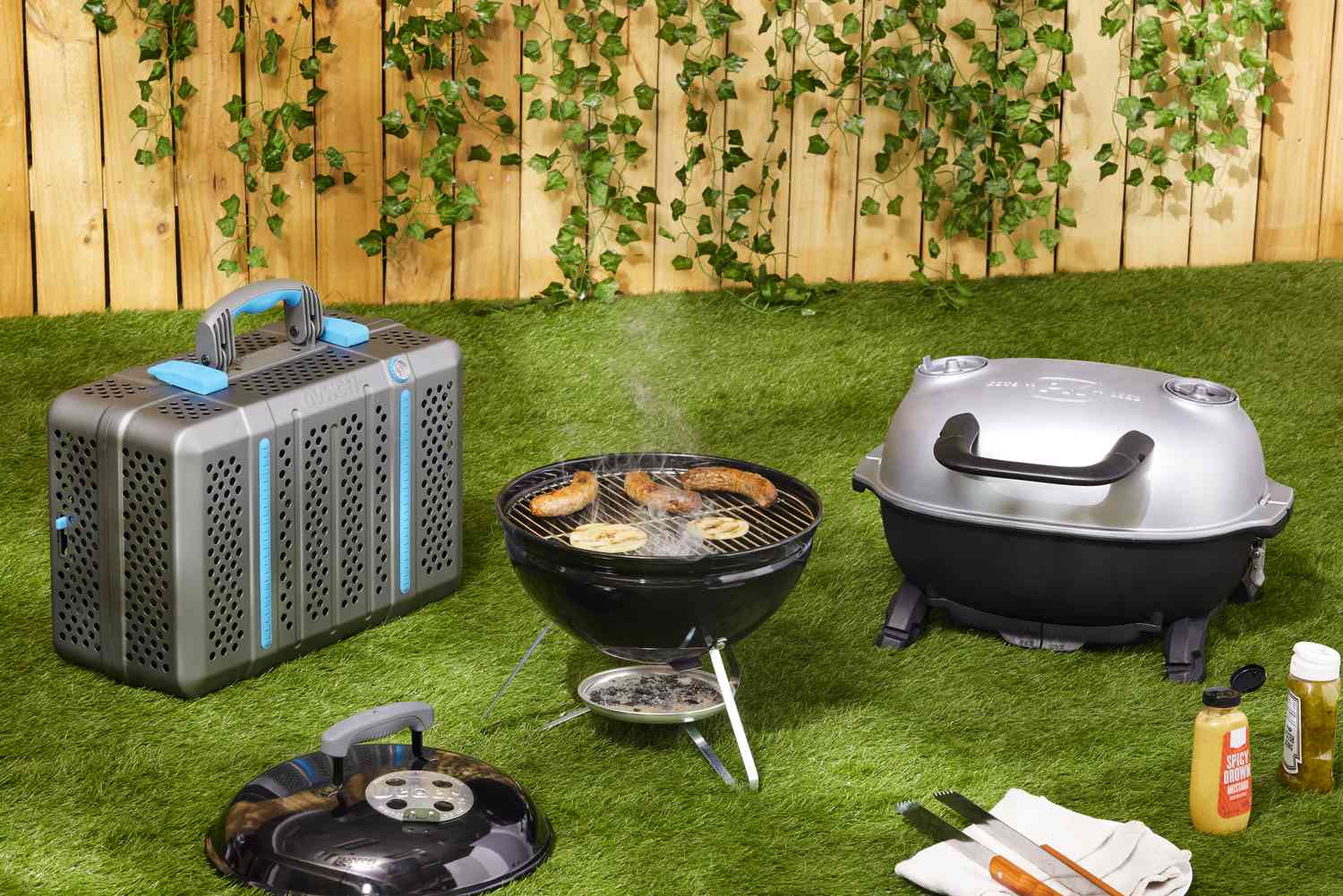
Introduction:
Whether you’re planning a camping trip, tailgating event, or simply enjoying a picnic in the park, a portable grill is an essential tool for outdoor cooking on the go. With so many options available, choosing the right portable grill can seem daunting. In this blog post, we’ll guide you through the key factors to consider when selecting a portable grill, ensuring you find the ideal combination of portability, performance, and convenience for your outdoor culinary adventures.
- Size and Portability:
The primary advantage of a portable grill is its ability to be easily transported. Consider the size and weight of the grill, as well as its ease of assembly and disassembly. Look for compact models that are lightweight and have folding legs or a collapsible design. Ideally, the grill should fit comfortably in your car trunk or be easily carried by hand. Portable grills with handles or carrying cases provide added convenience for transportation. - Fuel Type:
Portable grills are available in various fuel types, each with its own advantages. The common options include: a. Charcoal: Charcoal grills provide a traditional grilling experience and impart a distinct smoky flavor to the food. They are often lightweight, affordable, and easy to use. However, they require time for the charcoal to heat up and may produce more smoke. b. Propane: Propane grills offer convenience and quick heating. They are easy to ignite, provide consistent heat, and offer precise temperature control. Propane tanks are readily available and can be easily replaced or refilled. Propane grills are a popular choice for their ease of use and hassle-free cleanup. c. Electric: Electric grills are suitable for locations with access to electricity. They are easy to use and require minimal setup. Electric grills heat up quickly and offer precise temperature control. They are typically compact and produce no open flames or smoke. However, they depend on a power source and may not be suitable for remote outdoor locations.
Consider your preferences, availability of fuel sources, and the cooking experience you desire when choosing a grill based on fuel type.
- Cooking Area:
The size of the cooking area is an essential consideration to ensure you can cook enough food for your needs. Portable grills offer varying cooking surface areas, ranging from small enough for a few burgers to larger surfaces suitable for grilling for a small group. Assess the number of people you’ll be cooking for and the types of dishes you plan to prepare. Keep in mind that a larger cooking area may come at the cost of portability and weight. - Heat Output and Temperature Control:
A portable grill should provide adequate heat output to cook your food thoroughly and efficiently. Look for grills with adjustable heat controls or multiple burners, allowing you to customize the heat intensity based on your cooking requirements. Some grills offer built-in thermometers or temperature gauges, providing better control over the cooking process. Consistent heat distribution across the cooking surface is crucial to ensure even cooking. - Durability and Construction:
Portable grills need to withstand the rigors of outdoor use. Look for grills made from durable materials like stainless steel or cast iron, which offer excellent heat retention and durability. Stainless steel grills are lightweight and resistant to rust and corrosion, making them ideal for portable use. Pay attention to the quality of the construction, including sturdy legs, secure hinges, and well-fitted components. A well-built grill will provide longevity and reliable performance. - Ease of Cleaning:
Convenience extends beyond cooking when it comes to portable grills. Look for grills that are easy to clean and maintain, as quick cleanup is essential when you’re on the go. Features like removable grease trays, drip pans, or non-stick cooking surfaces simplify the cleaning process. Ensure that the grill’s components are easily accessible for cleaning and that they can be disassembled and reassembled without difficulty. - Additional Features:
Consider additional features that enhance the functionality and convenience of the portable grill. Some common features include: a. Grill Grates: Look for grates made from high-quality materials like cast iron or stainless steel. They should be sturdy, easy to clean, and provide good heat distribution for even cooking. b. Side Tables or Shelves: Foldable side tables or shelves provide extra workspace for food preparation and utensil placement. c. Temperature Control Features: Some grills offer features like adjustable vents or heat diffusers that allow you to control the airflow and heat distribution. d. Ignition Systems: Look for grills with reliable ignition systems, such as push-button ignitions or electronic starters, for easy and quick lighting.
Consider these additional features based on your specific needs and preferences.
Conclusion:
Choosing the right portable grill involves considering factors such as size and portability, fuel type, cooking area, heat output and temperature control, durability and construction, ease of cleaning, and additional features. By evaluating these factors and aligning them with your specific outdoor cooking needs, you can find aportable grill that offers the perfect balance of convenience, performance, and portability. Remember to prioritize your preferences and the types of outdoor activities you’ll be engaging in to make an informed decision. With the right portable grill by your side, you’ll be ready to enjoy delicious grilled meals wherever your adventures take you. Happy grilling!



